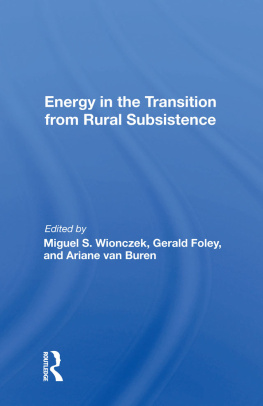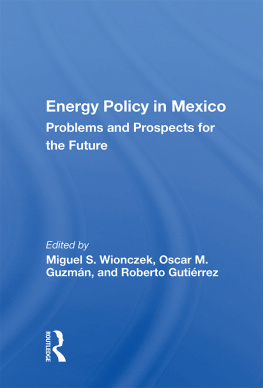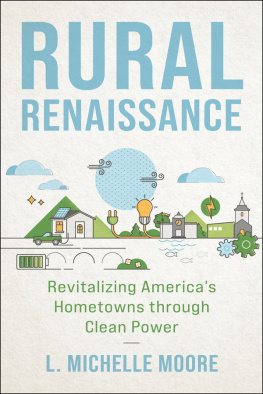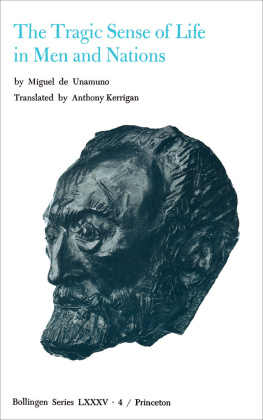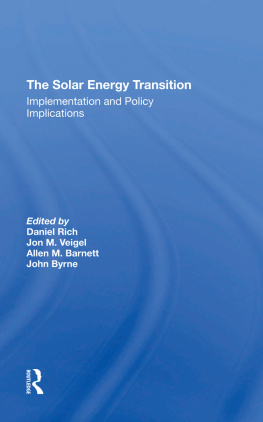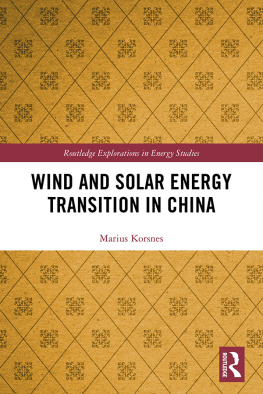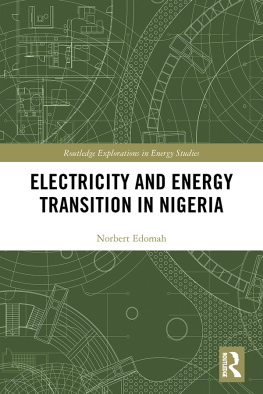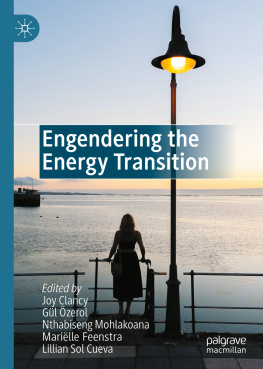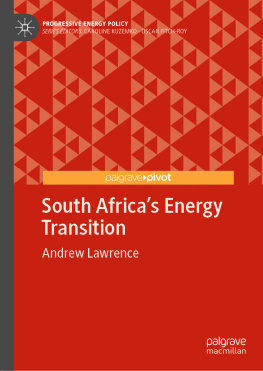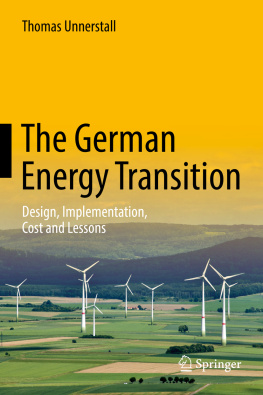Energy in the Transition from Rural Subsistence
Also of Interest
The Economies of New Technology in Developing Countries, edited by Frances Stewart and Jeffrey James
Managing Development Programs: The Lessons of Success, Samuel Paul
Appropriate Technology for Development: A Discussion and Case Histories, edited by Donald D. Evans and Laurie Nogg Adler
Strategies for Small Farmer Development: An Empirical Study of Rural Development Projects in The Gambia, Ghana, Kenya, Lesotho, Nigeria, Bolivia, Colombia, Mexico, Paraguay, and Peru, Elliott R. Morss, John . Hatch, Donald R. Mickelwait, and Charles F. Sweet
Farming Systems Besearoh and Development: Guidelines for Developing Countries, W. W. Shaner, P. F. Philipp, and W. R. Schmehl
Agroclimate Information for Development: Reviving the Green Revolution, edited by David F. Cusack
Natural Resources and development in Arid and Semiarid Regions, edited by Enrique Campos-Lopez and Robert J. Anderson
Women and Technological Change in Developing Countries, edited by Roslyn Dauber and Melinda L. Cain
Scientific-Technological Change and the Role of Women in Development, edited by Pamela M. D'Onofrio-Flores and Sheila M. Pfafflin
Managing Development in the Third World, Coralie Bryant and Louise G. White
Science and Technology in a Changing International Order: The United Nations Conference on Science and Technology for Development, edited by Volker Rittberger
Managing Renewable Natural Resources for developing Countries, edited by Charles W. Howe
Renewable "Energy Resources and Rural Applications in the Third World, edited by Norman L. Brown
Rural Electrification and Development: Social and Economic Impact in Costa Rica and Colombia, John Saunders, J. Michael Davis, Galen C. Moses, and James E. Ross
Readings in Farming Systems Research and Development, w. W. shaner, P. F. Philipp, and W. R. Schmehl
Available in hardcover and paperback.
Westview Special Studies in Social, Political, and Economic Development
Energy in the Transition from Rural Subsistence
edited by Miguel S. Wionczek, Gerald Foley, and Ariane van Buren
For the half of the world's population still dependent on wood and other traditional fuels for basic cooking and heating needs, a serious supply crisis is emerging: forests are disappearing and population pressure on other energy sources is mounting. This book analyzes the energy problems of those caught in the trap of rural subsistence and explores the role energy might play in the transition away from subsistence. It includes eight specially commissioned studies of different developing countries and a review of the small-scale energy technologies presently available for rural use.
Miguel S. Bionczek is senior fellow and head of the Long-Term Energy Research Project at El Colegio de Mexico. He has been deputy director general of the National Science and Technology Council, Mexico. Gerald Foley is a senior fellow of the International Institute for Environment and Development (IIED) in London and senior visiting research fellow of the Beijer Institute of the Royal Swedish Academy of Sciences. Ariane van Buren is a senior research associate of IIED.
The symposium on which this book is based,
sponsored by the International Institute
for Environment and Development (IIED)
and El Colegio de Mexico,
was held at El Colegio de Mexico, June 1981
Energy in the Transition from Rural Subsistence
edited by Miguel S. Wionczek, Gerald Foley, and Ariane van Buren
First published 1982 by Westview Press, Inc.
Published 2018 by Routledge
52 Vanderbilt Avenue, New York, NY 10017
2 Park Square, Milton Park, Abingdon, Oxon OX14 4RN
Routledge is an imprint of the Taylor & Francis Group, an informa business
Copyright 1982 by the International Institute for Environment and Development (IIED) and El Colegio de Mexico
All rights reserved. No part of this book may be reprinted or reproduced or utilised in any form or by any electronic, mechanical, or other means, now known or hereafter invented, including photocopying and recording, or in any information storage or retrieval system, without permission in writing from the publishers.
Notice:
Product or corporate names may be trademarks or registered trademarks, and are used only for identification and explanation without intent to infringe.
Library of Congress Catalog Card Number 82-50802
ISBN 13: 978-0-367-01280-9 (hbk)
Contents
Gerald Foley and Ariane van Buren
Hubertus E.M. Stassen and Willibrordus P.M. van Swaaij
Oscar Guzman
Roberto Caceres
Adilson de Oliveira and Luiz Piugnelli Rosa
Arnoldo Ventura
El Hadji Sene
G.J. Afolabi-Ojo
Yoon Hyung Kim
T.L. Sankar
Marcela Serrato
This book is an attempt to define the problem - or complex of problems - of energy demand and supply in the poorest agricultural sectors of the developing world.
Some 2000 million people now depend on wood and animal dung for their cooking and heating needs. The merciless arithmetic of population growth and depleting forests is depriving them of these resources on which their survival depends. The fossil fuels they need to increase production of food and raise their standards of living move even further out of reach as developing country economies crumble in the face of world economic recession.
Up to now most people in the rural areas of the developing world have simply gathered their fuel from the countryside around them in the same way as they have always done. It has been an unnoticed and apparently self-sustaining process. Rural energy has not needed to figure in the plans or calculations of national planners. Only in recent years has there begun the systematic and widespread data-collection which is essential for policy-making.
Efforts to deal with rural energy problems, whether by national governments or international agencies, have so far been sporadic; they have also shown few signs of being adequate to the task. There have been some examples of successful tree-planting on a large scale Korea is notable; China has shown that it is possible to install biogas digesters at the rate of a million a year - though there are signs that the programme has now run into serious difficulties. Apart from that there is little else to show. Solar pumps, windmills, solar cookers, and so on have failed to make the connection with the people they are meant to benefit. Objects of external experiment, they sit too often irrelevantly apart from the deteriorating conditions about them.
What, then, can usefully be done? There is no lack of good will or technical skills, and there are substantial resources available. More could certainly be obtained if promising lines of action could be identified.
This book is the result of an 18 month collaborative effort by the International Institute for Environment and Development (IIED), El Colegio de Mexico, the Technical Assistance Department of the Netherlands Foreign Ministry, and the Gesellschaft fur Technische Zusammenarbeit (GTZ) of the Federal German Republic. Its aim is to begin to sketch the outline of future energy strategies to cope with rural energy problems.
To provide a starting point, a paper delineating the area of investigation was prepared and circulated. It was the basis for a series of meetings between the organising institutions and the funding agencies. A formal background paper was then written and sent, with a request for comments and information, to potential participants in administrative and academic positions in developing countries, and to key people in development agencies with a special interest in energy. Following this, a brief was prepared and case-studies from eight developing countries were commissioned. In addition, a paper describing the present position in small-scale technology suitable for rural use was included to provide an informed technical background.


